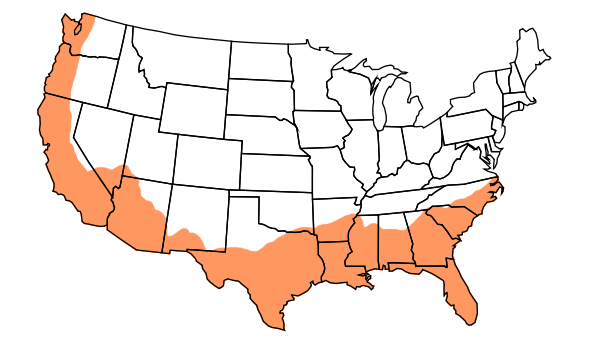The Florida Yew (Taxus floridana) is a unique and rare native conifer that can be found exclusively in the southeastern United States. This small, slow-growing evergreen tree is endemic to the limestone bluffs and ravines of the Apalachicola River in northern Florida. Due to its limited range and declining population, the Florida Yew is considered an endangered species.
The Florida Yew is a small to medium-sized tree, typically reaching a height of 12-18 feet with a similar width. It is closely related to other yew species, such as the Pacific Yew (Taxus brevifolia) and the English Yew (Taxus baccata), but it is distinguished by its unique geographical range and specific habitat requirements.
Growing in USDA hardiness zones 8-10, the Florida Yew thrives in moist, well-draining soils in limestone bluffs and ravines, often near the banks of the Apalachicola River. The tree is sensitive to environmental changes and can be difficult to cultivate outside its natural habitat, making it a rarity in the horticultural world.
The Florida Yew is prized for its attractive, dark green foliage. The leaves are needle-like, typically 0.5 to 1 inch long, and grow in a spiral pattern along the branches. The foliage remains evergreen throughout the year, providing year-round interest and color to the landscape.
The tree's dense, dark green foliage makes it an excellent choice for creating privacy screens, windbreaks, or as an accent plant in a native woodland garden. However, due to its endangered status and specific habitat requirements, the Florida Yew is seldom used in commercial or residential landscaping projects.
The Florida Yew is a dioecious species, meaning that it has separate male and female plants. Male plants produce small, inconspicuous yellow-green flowers in the spring, while female plants produce slightly larger, greenish-white flowers. Once pollinated, the female flowers give way to unique, berry-like fruits called arils.
The arils are small, about 0.3 to 0.5 inches in diameter, and ripen to a bright red color in the fall. Each aril contains a single, toxic seed, which contrasts with the fleshy, non-toxic aril surrounding it. The arils are an important food source for local wildlife, particularly birds, which help disperse the seeds and contribute to the tree's reproduction.
Every plant comes with our expert planting guide that will cover the specifics to ensure your plant grows absolutely nuts. It also comes with our free 30 day guarantee so if you aren't happy we got you covered.
We're not some middleman or corporate farm, when you buy from Flora's Market you are buying directly from a family of growers that's been doing it for generations. We pride ourselves on quality, that's why we back our plants 100% with our grower guarantee. If you're not happy don't sweat it, we got you covered.
